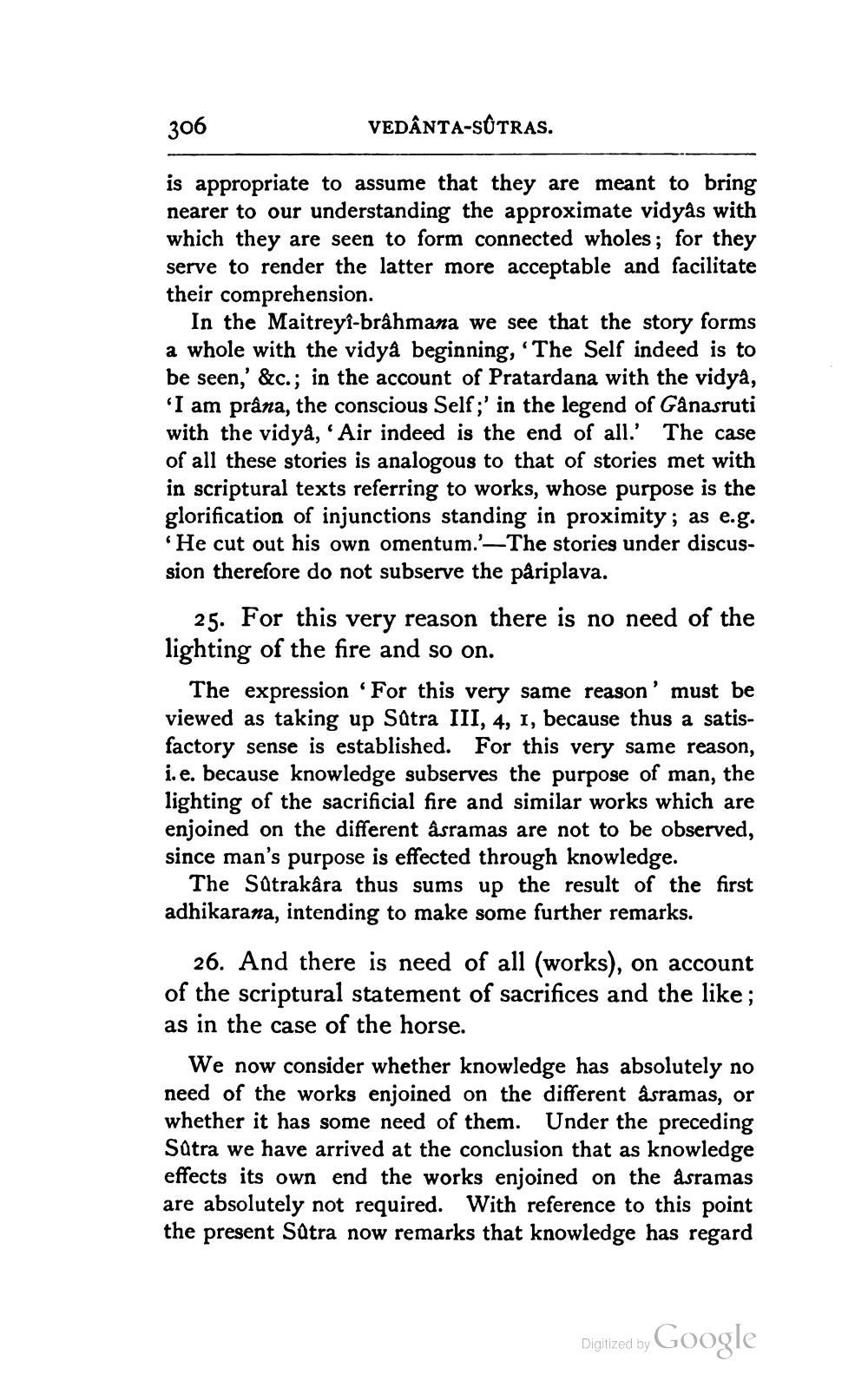________________
306
VEDÂNTA-SÛTRAS.
is appropriate to assume that they are meant to bring nearer to our understanding the approximate vidyås with which they are seen to form connected wholes; for they serve to render the latter more acceptable and facilitate their comprehension.
In the Maitreyî-brâhmana we see that the story forms a whole with the vidyå beginning, 'The Self indeed is to be seen,' &c.; in the account of Pratardana with the vidya, 'I am prâna, the conscious Self;' in the legend of Ganasruti with the vidya, 'Air indeed is the end of all.' The case of all these stories is analogous to that of stories met with in scriptural texts referring to works, whose purpose is the glorification of injunctions standing in proximity; as e.g. He cut out his own omentum.'—The stories under discussion therefore do not subserve the päriplava.
25. For this very reason there is no need of the lighting of the fire and so on.
The expression 'For this very same reason' must be viewed as taking up Satra III, 4, 1, because thus a satisfactory sense is established. For this very same reason, i.e. because knowledge subserves the purpose of man, the lighting of the sacrificial fire and similar works which are enjoined on the different asramas are not to be observed, since man's purpose is effected through knowledge.
The Sútrakâra thus sums up the result of the first adhikarana, intending to make some further remarks.
26. And there is need of all (works), on account of the scriptural statement of sacrifices and the like; as in the case of the horse.
We now consider whether knowledge has absolutely no need of the works enjoined on the different asramas, or whether it has some need of them. Under the preceding Sutra we have arrived at the conclusion that as knowledge effects its own end the works enjoined on the asramas are absolutely not required. With reference to this point the present Satra now remarks that knowledge has regard
Digitized by
Digilzed by Google




